
Az elviselhetetlen ellentmondás
¥58.29
A n?k a világ minden táján felfedezik, hogy kül?n?s er?vel rendelkeznek. Ujjuk egyetlen érintésével képesek sz?rny? fájdalmat okozni, s?t: gyilkolni is.A férfiak pedig ráj?nnek, hogy kicsúszott a kezükb?l az irányítás...Elérkezett a Lányok Napja, de vajon hogyan fog véget érni?A hatalom az elmúlt évek legnagyobb k?nyvsikereinek egyike, megjelenése óta megtalálható a legfontosabb sikerlistákon, 15 héten át szerepelt a New York Times mérvadó listáján. Már t?bb, mit két tucat nyelvre lefordították, rendkívüli aktualitásával, melyben egy új, n?k irányította j?v?t vizionál, jelent?s visszhangot váltott ki az irodalmi életben, a k?zéletben, a sajtóban és a politikában. Sorra kapja a fontos elismeréseket, a New York Times az év tíz legjobb k?nyve k?zé választotta, ahogyan Barack Obama is ajánlotta, mint az év egyik legfontosabb k?nyvét. "Provokatív, korszak-meghatározó thriller"-?Guardian "Az éhez?k viadala?és?A szolgálólány meséje?– vegyítve." -?Cosmopolitan "T?kéletes. Okos, ijeszt?, mulatságos."-?Daily Telegraph "Magával ragadó. Minden n?nek el kellene olvasni." -?The Times "Dermeszt?. Egy irodalmi bomba." -?Financial Times "Sokkoló." -?Observer "Felvillanyoz, sokkol, bámulatba ejt! ?s mélyen elgondolkoztat." - Margaret?Atwood ?"Dermeszt? mesterm?." - Sarah Perry ?"A szolgálólány meséje?a?Holtodiglan?generációjához." - Grazia

A III/III krónikája
¥71.69
BOJG?S AZ VIL?GBA M?G M?S MIND?NF?LE VAGYIS E ZA NYOTZADIK K?NYVEM, DE ?GY IS VAGYOK ?N M?N EVVEL MINT AKINEK A NY?TZADIK GYERM?KE SZ?LETIK, HOGY ASZONDI EZ L?GY?N A ZUT?S? IRTAM ?N MAGAM AZ SALY?T KEZEMMEL G?RE G?BOR BIR? ?R EBB?L A K?NYVB?L EZ M?N A NY?TZADIK ERESZT?S MER M?- GEN ELFOGYOTT NYOMTATT?K EBBE A ZESZTEND?BE DANTE ?R K?NYVESP?TZ?RUL KAPKODHAT? M?G MIND?N K?NYVES B?TBUL

Cibola meghódítása
¥71.29
THE MAN IN THE MOON.THE Man in the MoonCame tumbling down,And asked his way to Norwich;They told him south,And he burnt his mouthWith eating cold pease-porridge. TO MARKET, TO MARKET.TO market, to market, to buy a fat Pig;Home again, home again, dancing a jig. The Man In the Moon.To Market, to Market.There Was a Man.The Lion and the Unicorn.Little Miss Muffet.Oranges and Lemons.Goosey, Goosey Gander.Humpty Dumpty.Baa, Baa, Black Sheep.The Three Wise Men of Gotham. STORIES: - The Man In the Moon.- To Market, to Market.- There Was a Man.- The Lion and the Unicorn.- Little Miss Muffet.- Oranges and Lemons.- Goosey, Goosey Gander.- Humpty Dumpty.- Baa, Baa, Black Sheep.- The Three Wise Men of Gotham.

Assassin's Creed: Alvilág
¥71.69
To the irreverent—and which of us will claim entire exemption from that comfortable classification—there is something very amusing in the attitude of the orthodox criticism toward Bernard Shaw. He so obviously disregards all the canons and unities and other things which every well-bred dramatist is bound to respect that his work is really unworthy of serious criticism (orthodox). Indeed he knows no more about the dramatic art than, according to his own story in "The Man of Destiny," Napoleon at Tavazzano knew of the Art of War. But both men were successes each in his way—the latter won victories and the former gained audiences, in the very teeth of the accepted theories of war and the theatre. Shaw does not know that it is unpardonable sin to have his characters make long speeches at one another, apparently thinking that this embargo applies only to long speeches which consist mainly of bombast and rhetoric. There never was an author who showed less predilection for a specific medium by which to accomplish his results. He recognized, early in his days, many things awry in the world and he assumed the task of mundane reformation with a confident spirit. It seems such a small job at twenty to set the times aright. He began as an Essayist, but who reads essays now-a-days—he then turned novelist with no better success, for no one would read such preposterous stuff as he chose to emit. He only succeeded in proving that absolutely rational men and women—although he has created few of the latter—can be most extremely disagreeable to our conventional way of thinking. As a last resort, he turned to the stage, not that he cared for the dramatic art, for no man seems to care less about "Art for Art's sake," being in this a perfect foil to his brilliant compatriot and contemporary, Wilde. He cast his theories in dramatic forms merely because no other course except silence or physical revolt was open to him. For a long time it seemed as if this resource too was doomed to fail him. But finally he has attained a hearing and now attempts at suppression merely serve to advertise their victim. It will repay those who seek analogies in literature to compare Shaw with Cervantes. After a life of heroic endeavor, disappointment, slavery, and poverty, the author of "Don Quixote" gave the world a serious work which caused to be laughed off the world's stage forever the final vestiges of decadent chivalry. The institution had long been outgrown, but its vernacular continued to be the speech and to express the thought "of the world and among the vulgar," as the quaint, old novelist puts it, just as to-day the novel intended for the consumption of the unenlightened must deal with peers and millionaires and be dressed in stilted language. Marvellously he succeeded, but in a way he least intended. We have not yet, after so many years, determined whether it is a work to laugh or cry over. "It is our joyfullest modern book," says Carlyle, while Landor thinks that "readers who see nothing more than a burlesque in 'Don Quixote' have but shallow appreciation of the work." Shaw in like manner comes upon the scene when many of our social usages are outworn. He sees the fact, announces it, and we burst into guffaws. The continuous laughter which greets Shaw's plays arises from a real contrast in the point of view of the dramatist and his audiences. When Pinero or Jones describes a whimsical situation we never doubt for a moment that the author's point of view is our own and that the abnormal predicament of his characters appeals to him in the same light as to his audience. With Shaw this sense of community of feeling is wholly lacking. He describes things as he sees them, and the house is in a roar. Who is right If we were really using our own senses and not gazing through the glasses of convention and romance and make-believe, should we see things as Shaw does Must it not cause Shaw to doubt his own or the public's sanity to hear audiences laughing boisterously over tragic situations And yet, if they did not come to laugh, they would not come at all. Mockery is the price he must pay for a hearing. Or has he calculated to a nicety the power of reaction Does he seek to drive us to aspiration by the portrayal of sordidness, to disinterestedness by the picture of selfishness, to illusion by disillusionment It is impossible to believe that he is unconscious of the humor of his dramatic situations, yet he stoically gives no sign. He even dares the charge, terrible in proportion to its truth, which the most serious of us shrinks from—the lack of a sense of humor. Men would rather have their integrity impugned. In "Arms and the Man" the subject which occupies the dramatist's attention is that survival of barbarity—militarism—which raises its horrid head from time to time to cast a doubt on the reality of our civilization. No more hoary superstition survives than that the donning of a uniform changes the nature of the wearer. This

?szi k?ztársaság
¥80.52
Anna Karenina is a novel by the Russian writer Leon Tolstoy, published in serial installments from 1873 to 1877 in the periodical The Russian Messenger. Tolstoy clashed with editor Mikhail Katkov over political issues that arose in the final installment (Tolstoy's unpopular views of volunteers going to Serbia); therefore, the novel's first complete appearance was in book form. Widely regarded as a pinnacle in realist fiction, Tolstoy considered Anna Karenina his first true novel, when he came to consider War and Peace to be more than a novel. Fyodor Dostoevsky declared it to be "flawless as a work of art". His opinion was shared by Vladimir Nabokov, who especially admired "the flawless magic of Tolstoy's style", and by William Faulkner, who described the novel as "the best ever written". The novel is currently enjoying popularity, as demonstrated by a recent poll of 125 contemporary authors by J. Peder Zane, published in 2007 in "The Top Ten" in Time, which declared that Anna Karenina is the "greatest novel ever written" "..The novel opens with a scene introducing Prince Stepan Arkadyevich Oblonsky ("Stiva"), a Moscow aristocrat and civil servant who has been unfaithful to his wife Darya Alexandrovna ("Dolly"). Dolly has discovered his affair with the family's governess, and the household and family are in turmoil. Stiva's affair and his reaction to his wife's distress show an amorous personality that he cannot seem to suppress. In the midst of the turmoil, Stiva informs the household that his married sister, Anna Arkadyevna Karenina, is coming to visit from Saint Petersburg. Meanwhile, Stiva's childhood friend, Konstantin Dmitrievich Levin ("Kostya"), arrives in Moscow with the aim of proposing to Dolly's youngest sister, Princess Katerina Alexandrovna Shcherbatskaya ("Kitty"). Levin is a passionate, restless, but shy aristocratic landowner who, unlike his Moscow friends, chooses to live in the country on his large estate. He discovers that Kitty is also being pursued by Count Alexei Kirillovich Vronsky, an army officer. Whilst at the railway station to meet Anna, Stiva bumps into Vronsky who is there to meet his mother, the Countess Vronskaya. Anna and Vronskaya have traveled and talked together in the same carriage. As the family members are reunited, and Vronsky sees Anna for the first time, a railway worker accidentally falls in front of a train and is killed. Anna interprets this as an "evil omen." Vronsky, however, is infatuated with her. Anna is uneasy about leaving her young son, Sergei ("Seryozha"), alone for the first time.At the Oblonsky home, Anna talks openly and emotionally to Dolly about Stiva's affair and convinces her that Stiva still loves her despite the infidelity. Dolly is moved by Anna's speeches and decides to forgive Stiva. Kitty, who comes to visit Dolly and Anna, is just eighteen. In her first season as a debutante, she is expected to make an excellent match with a man of her social standing. Vronsky has been paying her considerable attention, and she expects to dance with him at a ball that evening. Kitty is very struck by Anna's beauty and personality and becomes infatuated with her just as Vronsky is. When Levin proposes to Kitty at her home, she clumsily turns him down, believing she is in love with Vronsky and that he will propose to her, and encouraged to do so by her mother who believes Vronsky would be a better match.At the big ball Kitty expects to hear something definitive from Vronsky, but he dances with Anna, choosing her as a partner over a shocked and heartbroken Kitty. Levin, crushed by Kitty's refusal, returns to his estate, abandoning any hope of marriage. Anna returns to her husband Alexei Alexandrovich Karenin, a senior government official, and her son Seryozha in Saint Petersburg. On seeing her husband for the first time since her encounter with Vronsky, Anna realises that she finds him unattractive, though she tells herself he is a good man.." ? ABOUT AUTHOR: Tolstoy was born in Yasnaya Polyana, the family estate in the Tula region of Russia. The Tolstoys were a well-known family of old Russian nobility. He was the fourth of five children of Count Nikolai Ilyich Tolstoy, a veteran of the Patriotic War of 1812, and Countess Mariya Tolstaya (Volkonskaya).
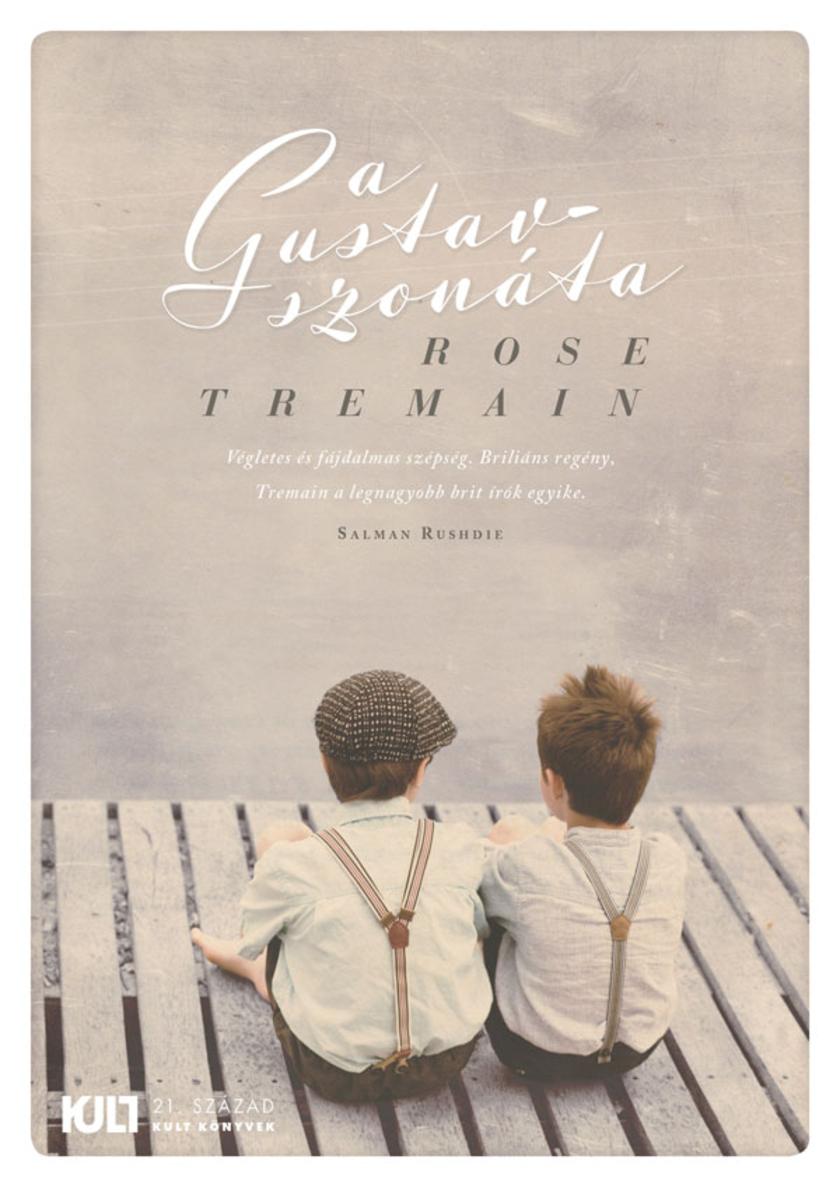
A Gustav-szonáta
¥70.80
One day – actor-turned-detective – Anthony Noir receives a letter from California, in which an old lady asks his help in the investigation of a long-ago case. On New Year’s Eve 1929 a famous Hollywood actress died in a car accident. The mysterious client implies it was – in fact – a deliberate murder. Anthony discovers all the possible details of the extraordinary assignment, even so he has to embark on an extensive journey to the past before he can unveil the secret of the movie star…

A Daughter of the Snow: (Illustrated)
¥8.09
Az emberek, törpök, manók és tündék több mint száz esztend?n keresztül éltek békében egymás mellett. De ennek a békének vége, és a fajok ismét egymás ellen – és maguk ellen – harcolnak. Ebben a viharos id?ben születik egy gyermek, akire a világ összes vajákja várt. Ciri a Cintrai N?stényoroszlán, Calanthe királyné unokája. Különös hatalmakkal és még különösebb sorssal van megáldva, mert egy jövendölés Lángnak hívja ?t: lángnak, amely örökre megváltoztatja a világot – jó vagy rossz irányba… Ríviai Geralt, a vaják magával viszi Cirit a vajákok központjába, de Ciri egyáltalán nem hasonlít a többi tanítványhoz. Nem kell keresztülmenjen az átlagos vajákok számára a természetfeletti képességek eléréséhez szükséges mutációkon, amelyek gyakran kiirtják az érzelmeket és az emberi érzékenységet. Ciri valami egészen egyedülálló.

Vallomás a csodáról: Csinszka naplója
¥68.83
Ki ne várná repesve, hogy beteljesíthesse gyermekkori vágyát?Hogy kiszakadva a hétk?znapok egyhangúságából végre nekivághasson egy kalandos világ k?rüli útnak?Lili Green izgatottan készül a régóta szervezett utazásra. ?sszekészített csomagokkal és új élmények reményével vág bele az indulás el?tti utolsó munkanapjába. ?m egy pillanat alatt minden a feje tetejére áll, amikor Lili egy b?ncselekmény szemtanújává válik, és ezáltal egy bérgyilkos céltáblájának k?zepére kerül. A teljesen félresiklott utazás pedig immár nem a szép emlékek gy?jtésér?l, hanem az életben maradásról szól.Carrie Cooper kalanddal, érzelemmel, humorral és váratlan fordulatokkal teli t?rténete során végigizgulhatjuk, hogy egy teljesen hétk?znapi lány mit tesz olyan cseppet sem mindennapi helyzetek sodrásában, amelyek végérvényesen megváltoztatják az életét.

Elátkozott angyal
¥57.31
L?NGRA LOBBAN A VIL?G ? Miután ezernyi lakható új világ felé nyílt meg az út, megkezd?dik a naprendszer hatalmi struktúráinak átrendez?dése. A Mars lassan elnéptelenedik, míg a küls? bolygók nagyobb befolyást próbálnak szerezni maguknak, és hajók t?nnek el sorra, megmagyarázhatatlan módon. ? Mindek?zben a Rocinante hosszabb id?re szárazdokkba kényszerül a lassú zónában és az Iloszon zajlott események miatt, ezért James Holden legénysége a javítások idejére “szabadságolja magát”, ki-ki visszatér a saját világába, hogy lezárja a múltja néhány elvarratlan szálát, és ez mindnyájuk számára a túlélésért folytatott keserves küzdelembe torkollik. De nem csak számukra: az emberiség saját végzete felé rohan, mert a múlt b?nei megk?vetelik az árukat. ? A New York Times bestseller és t?bbsz?r?sen díjnyertes regényciklusból a SyFy csatornán fut a nagy kritikai sikert aratott tévésorozat, a The Expanse.

Paleolit edzés
¥80.36
Egyszer éjjel z?rgést hallottam. Befutottam. Láttam, hogy az ágya üres. Aztán gyakrabban megnéztem. Sohse hallottam mikor elment, se mikor megj?tt. De mikor üres volt az ágya, felk?lt?ttem Apolló nénit és itt reszkettünk, itt imádkoztunk együtt a Mária képe el?tt, hogy az én jó bátyámat oltalmozza.

Az erd? vándorai
¥72.59
Шанувальниця врятувала письменника в?д смерт?. Але ?? захоплення перетворю?ться на?одержим?сть... Shanuval'nicja vrjatuvala pis'mennika v?d smert?. Ale ?? zahoplennja peretvorju?t'sja na?oderzhim?st'...

Karácsony receptre: Minden családnak jár a boldogság
¥56.57
Meddig mennél el a szeretteidért? Amikor Olivia Brookes felhívja a rend?rséget, hogy bejelentse férje és gyermekei elt?nését, azt hiszi, soha t?bbé nem látja viszont ?ket. Okkal fél a legrosszabbtól, hiszen nem ez az els? tragédia, amit átél. Most, két esztend?vel kés?bb, Tom Douglas f?felügyel?t ismét ehhez a családhoz küldik nyomozni, ám ezúttal Oliiva t?nt el. Minden bizonyíték arra utal, hogy reggel még az otthonában tartózkodott – kocsija a garázsban áll, pénztárcája a konyhaasztalon hever? táskájában van. A rend?rség el akarja rendelni Olivia keresését, de a családtagok ?sszes fényképét eltávolították a fotóalbumokból, számítógépekb?l, telefonokból. Aztán meglátják a vért… Vajon a múlt utolérte Oliviát? Aludj jól – ha tudsz. Sosem tudhatod, ki figyel.
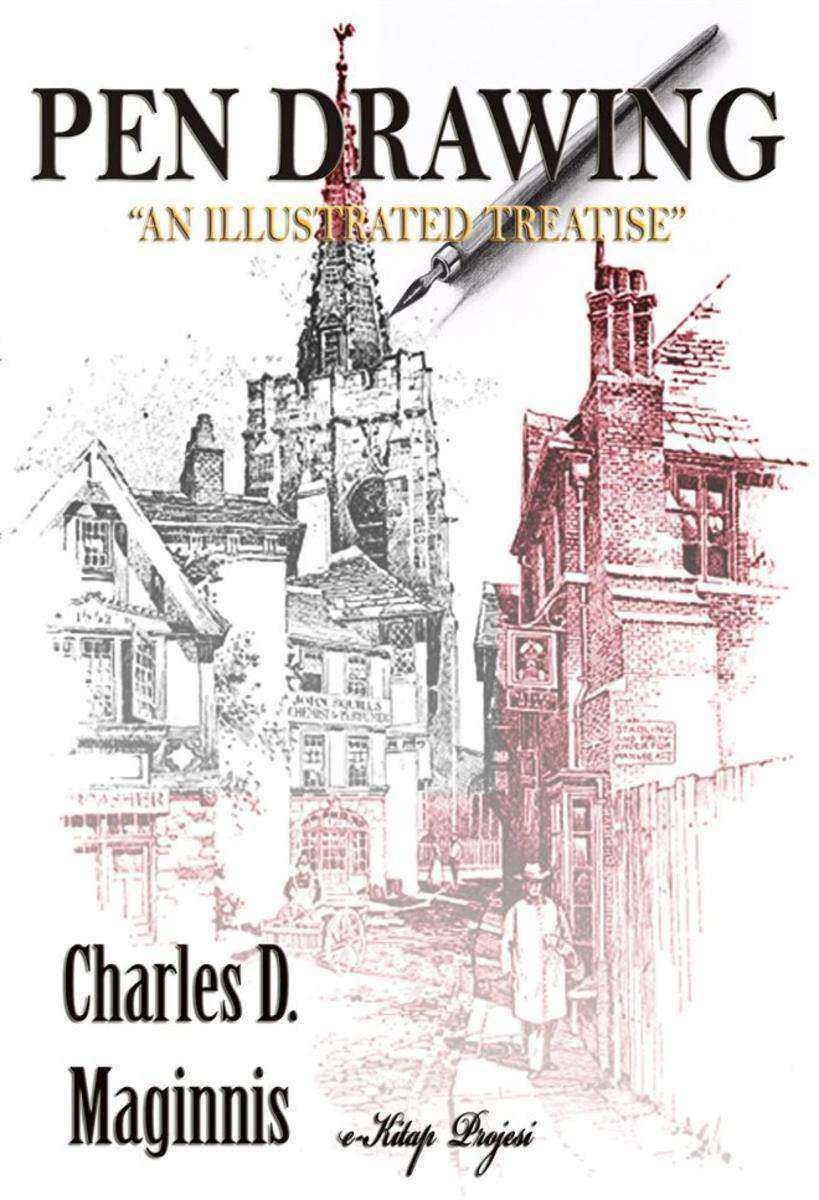
Pen Drawing: "An Illustrated Treatise"
¥18.74
The book's protagonist is an English scientist and gentleman inventor living in Richmond, Surrey in Victorian England, and identified by a narrator simply as the Time Traveller. The narrator recounts the Traveller's lecture to his weekly dinner guests that time is simply a fourth dimension, and his demonstration of a tabletop model machine for travelling through it. He reveals that he has built a machine capable of carrying a person, and returns at dinner the following week to recount a remarkable tale, becoming the new narrator.In the new narrative, the Time Traveller tests his device with a journey that takes him to A.D. 802,701, where he meets the Eloi, a society of small, elegant, childlike adults. They live in small communities within large and futuristic yet slowly deteriorating buildings, doing no work and having a frugivorous diet. His efforts to communicate with them are hampered by their lack of curiosity or discipline, and he speculates that they are a peaceful communist society, the result of humanity conquering nature with technology, and subsequently evolving to adapt to an environment in which strength and intellect are no longer advantageous to survival. Returning to the site where he arrived, the Time Traveller is shocked to find his time machine missing, and eventually works out that it has been dragged by some unknown party into a nearby structure with heavy doors, locked from the inside, which resembles a Sphinx. Later in the dark, he is approached menacingly by the Morlocks, ape-like troglodytes who live in darkness underground and surface only at night. Within their dwellings he discovers the machinery and industry that makes the above-ground paradise possible. He alters his theory, speculating that the human race has evolved into two species: the leisured classes have become the ineffectual Eloi, and the downtrodden working classes have become the brutish light-fearing Morlocks. Deducing that the Morlocks have taken his time machine, he explores the Morlock tunnels, learning that they feed on the Eloi. His revised analysis is that their relationship is not one of lords and servants but of livestock and ranchers. The Time Traveller theorizes that intelligence is the result of and response to danger; with no real challenges facing the Eloi, they have lost the spirit, intelligence, and physical fitness of humanity at its peak. Meanwhile, he saves an Eloi named Weena from drowning as none of the other Eloi take any notice of her plight, and they develop an innocently affectionate relationship over the course of several days. He takes Weena with him on an expedition to a distant structure that turns out to be the remains of a museum, where he finds a fresh supply of matches and fashions a crude weapon against Morlocks, whom he fears he must fight to get back his machine. He plans to take Weena back to his own time. Because the long and tiring journey back to Weena's home is too much for them, they stop in the forest, and they are then overcome by Morlocks in the night, and Weena faints. The Traveller escapes only when a small fire he had left behind them to distract the Morlocks catches up to them as a forest fire; Weena is presumably lost in the fire, as are the Morlocks. The Morlocks use the time machine as bait to ensnare the Traveller, not understanding that he will use it to escape. He travels further ahead to roughly 30 million years from his own time. There he sees some of the last living things on a dying Earth, menacing reddish crab-like creatures slowly wandering the blood-red beaches chasing butterflies in a world covered in simple lichenous vegetation. He continues to make short jumps through time, seeing Earth's rotation gradually cease and the sun grow larger, redder, and dimmer, and the world falling silent and freezing as the last degenerate living things die out.

Cue for Quiet
¥9.24
Madame Bovary takes place in provincial northern France, near the town of Rouen in Normandy. The story begins and ends with Charles Bovary, a stolid, kindhearted man without much ability or ambition. As the novel opens, Charles is a shy, oddly dressed teenager arriving at a new school amidst the ridicule of his new classmates. Later, Charles struggles his way to a second-rate medical degree and becomes an officier de santé in the Public Health Service. His mother chooses a wife for him, an unpleasant but supposedly rich widow named Heloise Dubuc, and Charles sets out to build a practice in the village of Tostes (now T?tes). One day, Charles visits a local farm to set the owner's broken leg, and meets his client's daughter, Emma Rouault. Emma is a beautiful, daintily dressed young woman who has received a "good education" in a convent and who has a latent but powerful yearning for luxury and romance imbibed from the popular novels she has read. Charles is immediately attracted to her, and begins checking on his patient far more often than necessary until Heloise's jealousy puts a stop to the visits. When Heloise dies, Charles waits a decent interval, then begins courting Emma in earnest. Her father gives his consent, and Emma and Charles are married. ABOUT AUTHOR: Gustave Flaubert (French: December 12, 1821 – May 8, 1880) was an influential French writer widely considered one of the greatest novelists in Western literature. He is known especially for his first published novel, Madame Bovary (1857), for his Correspondence, and for his scrupulous devotion to his style and aesthetics. The celebrated short story writer Maupassant was a protégé of Flaubert. Early life and education:Flaubert was born on December 12, 1821, in Rouen, in the Seine-Maritime department of Upper Normandy, in northern France. He was the second son of Anne Justine Caroline (née Fleuriot; 1793–1872) and Achille-Cléophas Flaubert (1784–1846), a surgeon. He began writing at an early age, as early as eight according to some sources.He was educated at the Lycée Pierre Corneille in Rouen, and did not leave until 1840, when he went to Paris to study law. In Paris, he was an indifferent student and found the city distasteful. He made a few acquaintances, including Victor Hugo. Toward the end of 1840, he traveled in the Pyrenees and Corsica. In 1846, after an attack of epilepsy, he left Paris and abandoned the study of law. Writing career:His first finished work was November, a novella, which was completed in 1842.In September 1849, Flaubert completed the first version of a novel, The Temptation of Saint Anthony. He read the novel aloud to Louis Bouilhet and Maxime Du Camp over the course of four days, not allowing them to interrupt or give any opinions. At the end of the reading, his friends told him to throw the manuscript in the fire, suggesting instead that he focus on day-to-day life rather than fantastic subjects.In 1850, after returning from Egypt, Flaubert began work on Madame Bovary. The novel, which took five years to write, was serialized in the Revue de Paris in 1856. The government brought an action against the publisher and author on the charge of immorality, which was heard during the following year, but both were acquitted. When Madame Bovary appeared in book form, it met with a warm reception.In 1858, Flaubert traveled to Carthage to gather material for his next novel, Salammb?. The novel was completed in 1862 after four years of work.Drawing on his youth, Flaubert next wrote L'?ducation sentimentale (Sentimental Education), an effort that took seven years. This was his last complete novel, published in the year 1869.He wrote an unsuccessful drama, Le Candidat, and published a reworked version of Temptation of Saint Anthony.
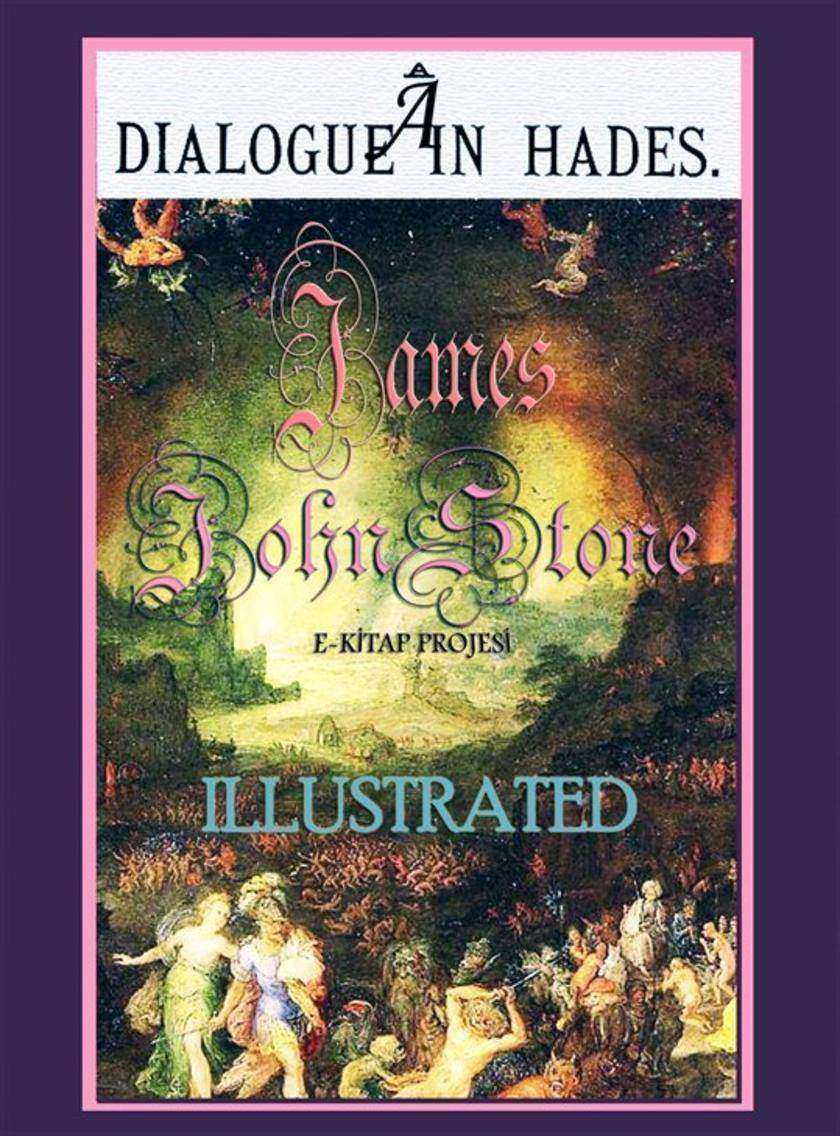
A Dialogue in Hades: "Illustrated"
¥8.09
t lány, t nézpont, t knyv. Cherry trténete, a Cseresznyés ábránd az els. Cherry Costello élete hamarosan rkre megváltozik. Somersetbe kltzik az apukájával, ahol egy új anyuka és egy csomó vadiúj testvér vár rá. Rgtn az els napon megismeri Shay Fletchert, aki annyira szívdgleszt, hogy az már kzveszélyes. Csakhogy Shay foglalt: Cherry új mostohatestvérével, Honey-val jár. Cherry pontosan tudja, milyen kockázatos Shayjel barátkoznia – hiszen ezzel mindent tnkretehet. Csakhogy ez még nem jelenti azt, hogy távol is tudja tartani magát tle… Csajok és csokik. Egy knyvsorozat, melyben minden testvérnek megvan a maga trténete… Neked melyik lány lesz a kedvenced Talán a Cseresznyés ábránd fhse, Cherry Az a lány, akinek tejeskávé szín a bre, stétbarna szeme pedig mandulavágású. Akinek élénk a képzelete, szórakoztató a társaságában lenni, és aki mindig kiáll magáért. Cathy Cassidy nyolc-kilencéves korában írta meg els képesknyvét kisccsének, és azóta ontja magából a trténeteket. Magyarul elsként a Csajok és csokik-sorozata (a Cseresznyés ábránd az 1. ktet) jelenik meg, melynek a vagány Tanberry-nvérek a fhsei, de mellettük feltnik néhány szupermen srác is, valamint Cathy egyik legnagyobb szerelme, a csokoládé is fontos szerepet kap. Cathy Skóciában él a családjával. Az sszes munka kzül, amivel valaha megpróbálkozott, az írást szereti a legjobban – hiszen amikor ír, mást sem kell csinálnia, mint ébren álmodozni egész álló nap.
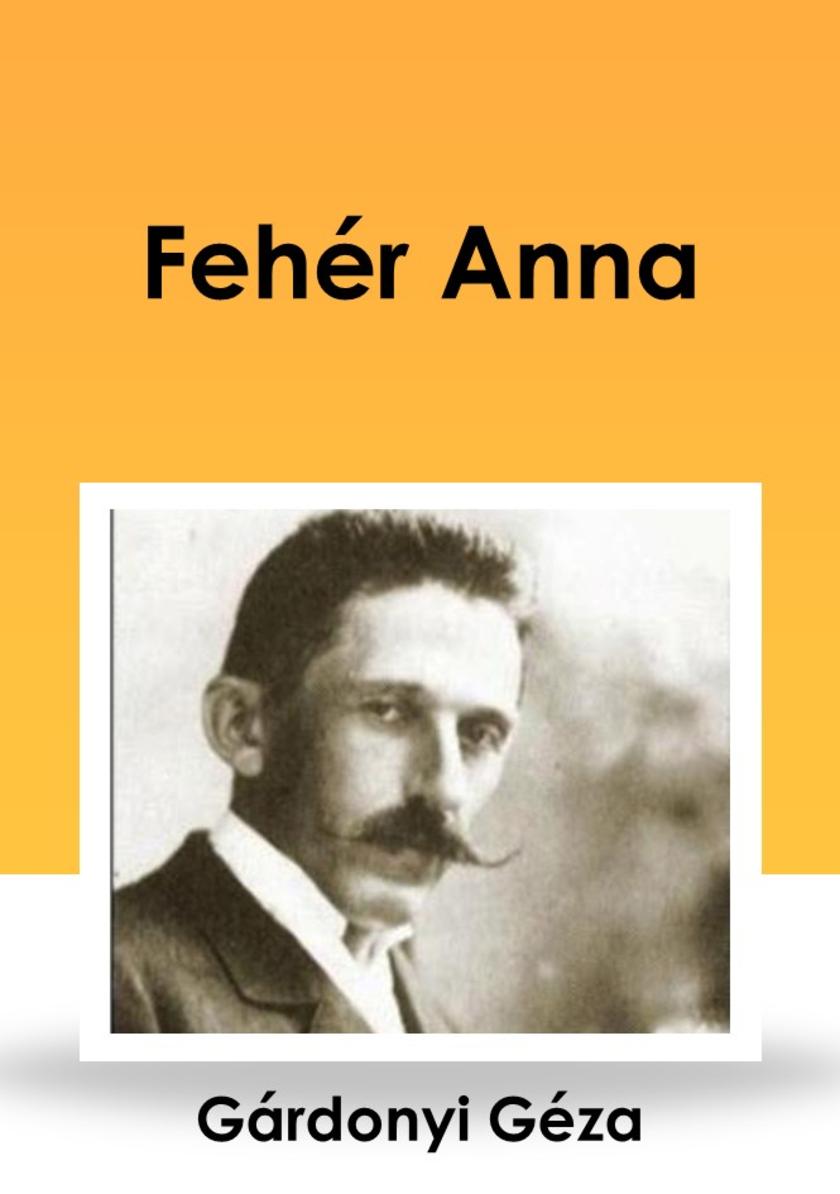
Fehér Anna
¥8.67
THERE are various methods of introducing an artist to his public. One of the best is to describe how you saved his life in the Bush in ’82; or he saved yours; and then you go on: “Little did either of us anticipate in those far-off days that Fougasse was destined to become . . .” Another way is to leave Fougasse out altogether, and concentrate, how happily, on your own theories of black-and-white drawing, or politics, or the decline of the churches; after all, an introduction doesn’t last long, and he has the rest of the book to himself. Perhaps, however, it is kinder to keep the last paragraph for him: “Take these little sketches by Fougasse, for instance . . .” and the reader, if he cares to any longer, can then turn over and take them. Left to ourselves, that is the method we should adopt. But the publisher is at our elbow. “This is an introduction,” he says. “For Heaven’s sake introduce the fellow.” Let us begin, then, by explaining Fougasse’s nationality. I never discuss his drawings with another, but we tell each other how remarkable it is that a Frenchman should have such an understanding of English sport. “Of course,” we say, “in the actual drawing the nationality reveals itself; the Gallic style stands forth unmistakeably; only a Frenchman has just that line. But how amazingly British is the outlook! Was there ever a Frenchman before who understood and loved cricket as this one?” We ask ourselves how the phenomenon is to be explained. The explanation is simple. A fougasse—I quote the dictionary—is a small mine from six to twelve feet underground charged either with powder or loaded shells; and if a British sapper subaltern, severely wounded at Gallipoli, beguiles the weary years of hospital by drawing little pictures and sending them up to Punch, he may as well call himself Fougasse as anything else. Particularly if his real name is Bird, and if a Bird, whose real name is Yeats, is already drawing for Punch. Of course it would have been simpler if they had all stuck to their own names like gentlemen, but it is too late now to do anything about it, and when a genuine M. Fougasse of Paris comes along, he will have to call himself Tomkins. Once the downward path of deceit is trodden, there is seemingly no end to it. We have our artist, then, Kenneth Bird of Morar, Inverness. When I first met him at the beginning of 1919, he was just out of hospital, swinging slowly along with the aid of a pair of rocking-horse crutches. This was on his annual journey south, for they have the trains in Morar now. Once a year Fougasse makes the great expedition to London, to see what the latest fashions may be, and is often back in Morar again before they have changed to something later. I have seen him each year; in 1920 with two ordinary crutches; in 1921 with two sticks; in 1922 with one stick; perhaps by 1923 he will be playing again the games of which he makes such excellent fun. But, selfishly, we cannot regret the Turkish bullet, which turned what I suspect of being quite an ordinary engineer into such an individual black-and-white draughtsman. I am really the last person who should be writing this introduction, for all drawing is to me a mystery. When I put two dots, a horizontal line and a vertical line into a circle, the result is undoubtedly a face, but whose, or what expressing, I cannot tell you until afterwards, nor always then. But these mystery men can definitely promise you beforehand that their dot-and-line juggling will represent Contempt or Surprise or Mr. Asquith, just as you want it. It is very strange; and, sometimes I think, not quite fair. However, this is not the place wherein to dwell upon the injustice of it. What I wanted to say was that with Fougasse I feel a little more at ease than usual; we have something in common. Accepting the convention that writers write exclusively with the pen, and that black-and-white artists draw exclusively with the pencil, I should describe Fougasse as more nearly a Brother..
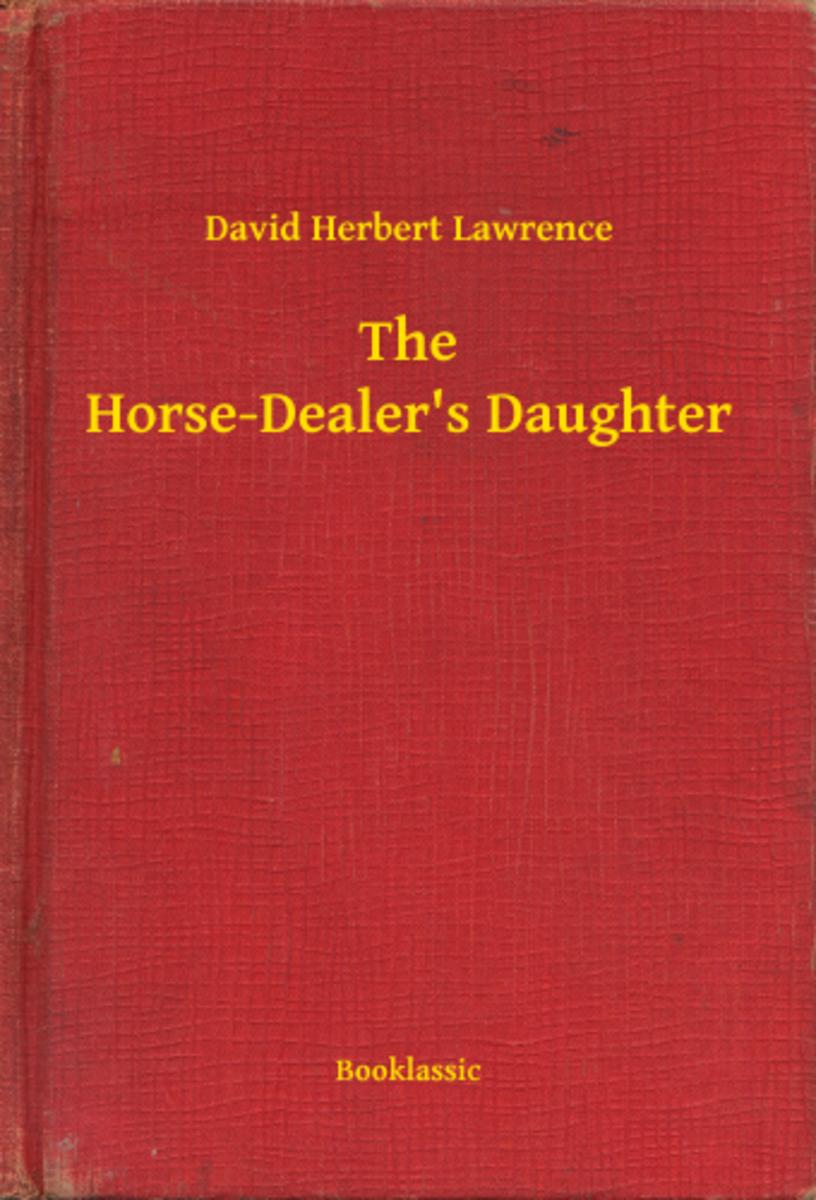
The Horse-Dealer's Daughter
¥7.93
Vajon a lélek tényleg láthatatlan?Az alapszabályok: a léleknek nincs alakja, nem tud beszélni.Akkor mégis ki az a lány, akinek a lelke minduntalan felbukkan Péter mellett és kapcsolatba lép vele?500 évvel ezel?tt a Brit Birodalom vezet?i úgy gondolták, nem elegend? a halálbüntetés a gyilkosoknak. Három, kül?nleges adottságú férfi képes volt a haláluk után is a f?ld?n tartani a b?n?s lelkeket. ?r?k magányra kárhoztatták ?ket, mivel sem egymással, sem az emberekkel nem tudtak kommunikálni.A 17 éves Peter kül?nleges képessége segítségével szembemegy az ítéletekkel és meg tudja szabadítani ezeket a lelkeket a béklyóiktól. Kezdetben nagyon élvezi a küldetését, de egy id? után egyre er?sebbé és félelmetesebbé válnak a b?n?s lelkek.Ki lehet az a titokzatos lány, akinek a lelke Peter mellé szeg?dik, és akivel alkut k?tnek? Vajon ki az a XIX. századi sorozatgyilkos, akinek a szellemével szembe találja magát Peter? Hogyan képesek ezek a megbéklyózott lelkek él? embereket irányítani? Ezekre a kérdésekre ad választ V.E Gabriel els? k?nyve, a Lélekbéklyó. Ha borzongató izgalomra vágysz, ebben a k?tetben nem fogsz csalódni.
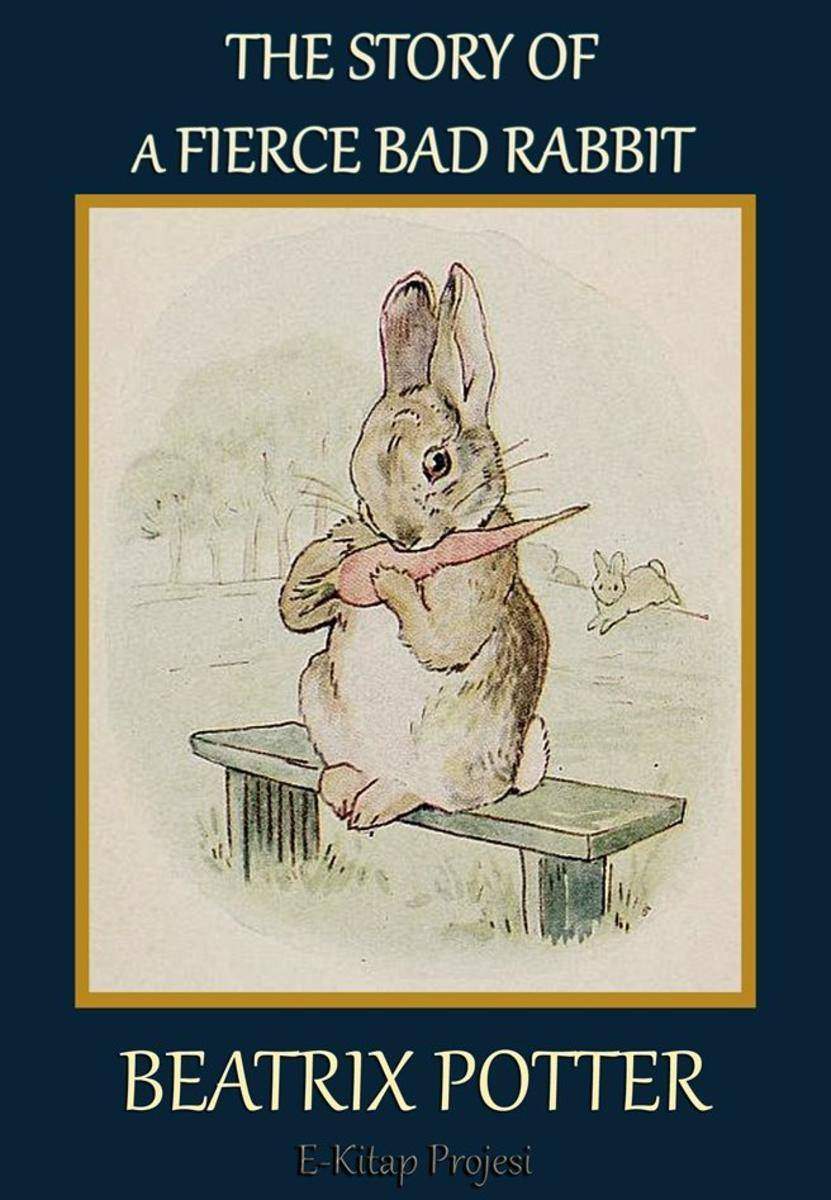
The Story of a Fierce Bad Rabbit
¥9.24
There is a woman in the state of Nevada to whom I once lied continuously, consistently, and shamelessly, for the matter of a couple of hours. I don't want to apologize to her. Far be it from me. But I do want to explain. Unfortunately, I do not know her name, much less her present address. If her eyes should chance upon these lines, I hope she will write to me.It was in Reno, Nevada, in the summer of 1892. Also, it was fair-time, and the town was filled with petty crooks and tin-horns, to say nothing of a vast and hungry horde of hoboes. It was the hungry hoboes that made the town a "hungry" town. They "battered" the back doors of the homes of the citizens until the back doors became unresponsive.A hard town for "scoffings," was what the hoboes called it at that time. I know that I missed many a meal, in spite of the fact that I could "throw my feet" with the next one when it came to "slamming a gate for a "poke-out" or a "set-down," "or hitting for a light piece" on the street. Why, I was so hard put in that town, one day, that I gave the porter the slip and invaded the private car of some itinerant millionnaire. The train started as I made the platform, and I headed for the aforesaid millionnaire with the porter one jump behind and reaching for me. It was a dead heat, for I reached the millionnaire at the same instant that the porter reached me. I had no time for formalities. "Gimme a quarter to eat on," I blurted out. And as I live, that millionnaire dipped into his pocket and gave me ... just ... precisely ... a quarter. It is my conviction that he was so flabbergasted that he obeyed automatically, and it has been a matter of keen regret ever since, on my part, that I didn't ask him for a dollar. I know that I'd have got it. I swung off the platform of that private car with the porter manoeuvering to kick me in the face. He missed me. One is at a terrible disadvantage when trying to swing off the lowest step of a car and not break his neck on the right of way, with, at the same time, an irate Ethiopian on the platform above trying to land him in the face with a number eleven. But I got the quarter! I got it!But to return to the woman to whom I so shamelessly lied. It was in the evening of my last day in Reno. I had been out to the race-track watching the ponies run, and had missed my dinner (i.e. the midday meal). I was hungry, and, furthermore, a committee of public safety had just been organized to rid the town of just such hungry mortals as I. Already a lot of my brother hoboes had been gathered in by John Law, and I could hear the sunny valleys of California calling to me over the cold crests of the Sierras. Two acts remained for me to perform before I shook the dust of Reno from my feet. One was to catch the blind baggage on the westbound overland that night. The other was first to get something to eat. Even youth will hesitate at an all-night ride, on an empty stomach, outside a train that is tearing the atmosphere through the snow-sheds, tunnels, and eternal snows of heaven-aspiring mountains.But that something to eat was a hard proposition. I was "turned down" at a dozen houses. Sometimes I received insulting remarks and was informed of the barred domicile that should be mine if I had my just deserts. The worst of it was that such assertions were only too true. That was why I was pulling west that night. John Law was abroad in the town, seeking eagerly for the hungry and homeless, for by such was his barred domicile tenanted.At other houses the doors were slammed in my face, cutting short my politely and humbly couched request for something to eat. At one house they did not open the door. I stood on the porch and knocked, and they looked out at me through the window. They even held one sturdy little boy aloft so that he could see over the shoulders of his elders the tramp who wasn't going to get anything to eat at their house.

The Pool of the Stone God
¥7.93
A Váltságdíj nélkül cím? k?tetb?l már jól ismert négy fiatal, Doma, Max, Zoli és Zsófi élete egy nap fenekestül felfordul. Zolit ?sszeverve találják a lakásán. A brókerbotrány károsultjaitól tíz napot kap, hogy el?teremtsen száztízmilliót. Zoli és Max elindul, hogy felkutassa Zoli apját. Zsófi nyomtalanul felszívódik, Doma a lány keresésére indul. Hová t?nt Zsófi, és hol bujkál Zoli apja? Vajon sikerül a fiúknak mindenkit megtalálni? ?s honnan lesz nekik száztízmilliójuk?!? Varga Bálint (1970) újságíró, író. 2015-ben jelent meg els? regénye, a Váltságdíj nélkül. T?bb, mint negyven krimit (k?ztük Lawrence Block és Jim Thompson munkáit) valamint ifjúsági regényeket (P. B. Kerr A lámpás gyermekei-sorozat) fordított. Számos k?nyv (k?ztük John le Carré regényeinek) szerkeszt?je. Tíz éven át maga is k?nyvkiadó volt. 2013-ig pedig egy magánnyomozó-irodának dolgozott analitikusként és legális hírszerz?ként.?
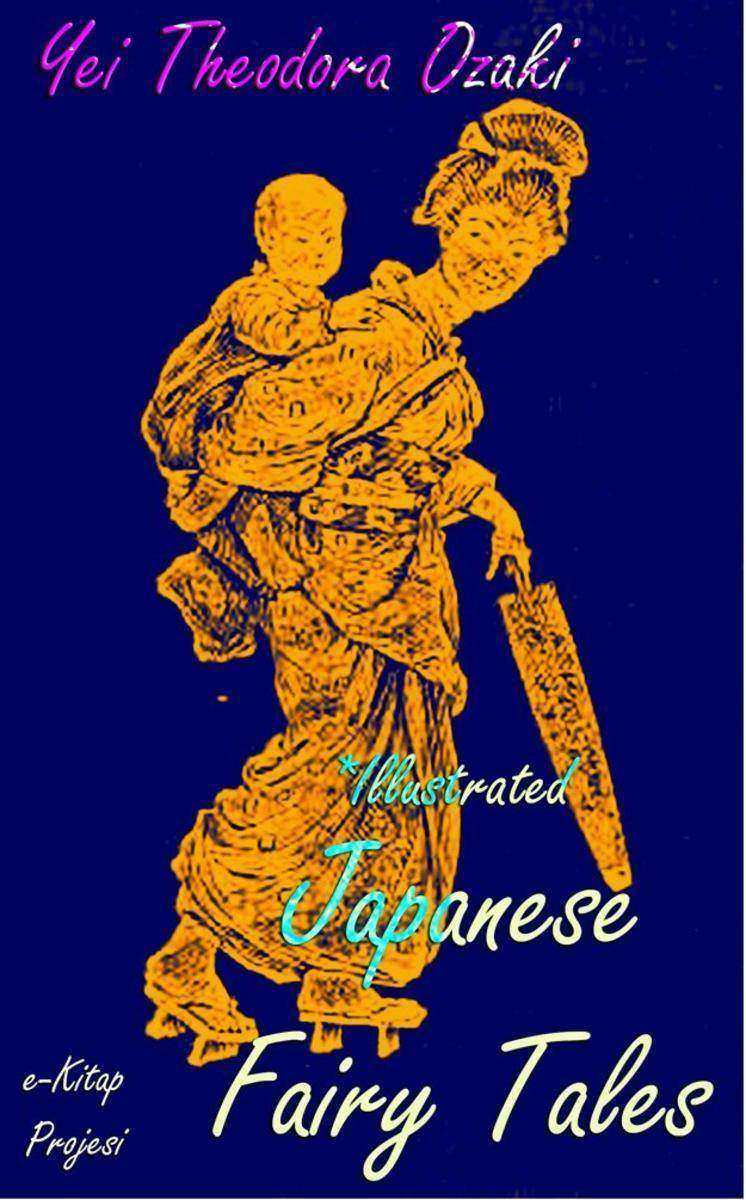
Japanese Fairy Tales: Illustrated
¥18.74
THE ARABIAN NIGHTS “THE ORIENT MAGIC” The Talking Bird, The Singing Tree, and the Golden WaterThe Story of the Fisherman and the GenieThe History of the Young King of the Black IslesThe Story of Gulnare of the SeaThe Story of Aladdin; Or, the Wonderful LampThe Story of Prince AgibThe Story of the City of BrassThe Story of Ali Baba and the Forty ThievesThe History of Codadad and His BrothersThe Story of Sinbad the Voyager The Talking Bird:It will be sufficient to break off a branch and carry it to plant in your gardenThe Fisherman and the GenieThe smoke ascended to the clouds, and extending itself along the sea and upon the shore formed a great mist The Young King of the Black IslesWhen he came to this part of his narrative the young king could not restrain his tearsGulnare of the SeaAnd she proceeded to burn perfume and repeat spells until the sea foamed and was agitatedAladdinAt the same time the earth, trembling, opened just before the magician, and uncovered a stone, laid horizontally, with a brass ring fixed into the middlePrince AgibAnd when the boat came to me I found in it a man of brass, with a tablet of lead upon his breast, engraven with names and talismans Prince AgibAt the approach of evening I opened the first closet and, entering it, found a mansion like paradiseThe City of BrassAnd when they had ascended that mountain they saw a city than which eyes had not beheld any greaterThe Story of Ali Baba and the Forty ThievesCassim ... was so alarmed at the danger he was in that the more he endeavoured to remember the word Sesame the more his memory was confoundedThe History of Codadad and His BrothersAs it drew near we saw ten or twelve armed pirates appear on the deckSecond Voyage of SinbadThe spot where she left me was encompassed on all sides by mountains that seemed to reach above the clouds, and so steep that there was no possibility of getting out of the valleyThird Voyage of SinbadHaving finished his repast, he returned to his porch, where he lay and fell asleep, snoring louder than thunder.. Little excuse is needed, perhaps, for any fresh selection from the famous "Tales of a Thousand and One Nights," provided it be representative enough, and worthy enough, to enlist a new army of youthful readers. Of the two hundred and sixty-four bewildering, unparalleled stories, the true lover can hardly spare one, yet there must always be favourites, even among these. We have chosen some of the most delightful, in our opinion; some, too, that chanced to appeal particularly to the genius of the artist. If, enticed by our choice and the beauty of the pictures, we manage to attract a few thousand more true lovers to the fountain-book, we shall have served our humble turn. The only real danger lies in neglecting it, in rearing a child who does not know it and has never fallen under its spell. You remember Maimoune, in the story of Prince Camaralzaman, and what she said to Danhasch, the genie who had just arrived from the farthest limits of China? "Be sure thou tellest me nothing but what is true or I shall clip thy wings!" This is what the modern child sometimes says to the genies of literature, and his own wings are too often clipped in consequence."The Empire of the Fairies is no more. Reason has banished them from ev'ry shore;Steam has outstripped their dragons and their cars,Gas has eclipsed their glow-worms and their stars."?douard Laboulaye says in his introduction to Nouveaux Contes Bleus: "Mothers who love your children, do not set them too soon to the study of history; let them dream while they are young.

Macbeth: "Illustrated"
¥9.24
Towards the end of November, during a thaw, at nine o'clock one morning, a train on the Warsaw and Petersburg railway was approaching the latter city at full speed. The morning was so damp and misty that it was only with great difficulty that the day succeeded in breaking; and it was impossible to distinguish anything more than a few yards away from the carriage windows.Some of the passengers by this particular train were returning from abroad; but the third-class carriages were the best filled, chiefly with insignificant persons of various occupations and degrees, picked up at the different stations nearer town. All of them seemed weary, and most of them had sleepy eyes and a shivering expression, while their complexions generally appeared to have taken on the colour of the fog outside. When day dawned, two passengers in one of the third-class carriages found themselves opposite each other. Both were young fellows, both were rather poorly dressed, both had remarkable faces, and both were evidently anxious to start a conversation. If they had but known why, at this particular moment, they were both remarkable persons, they would undoubtedly have wondered at the strange chance which had set them down opposite to one another in a third-class carriage of the Warsaw Railway Company. One of them was a young fellow of about twenty-seven, not tall, with black curling hair, and small, grey, fiery eyes. His nose was broad and flat, and he had high cheek bones; his thin lips were constantly compressed into an impudent, ironical—it might almost be called a malicious—smile; but his forehead was high and well formed, and atoned for a good deal of the ugliness of the lower part of his face. A special feature of this physiognomy was its death-like pallor, which gave to the whole man an indescribably emaciated appearance in spite of his hard look, and at the same time a sort of passionate and suffering expression which did not harmonize with his impudent, sarcastic smile and keen, self-satisfied bearing. He wore a large fur—or rather astrachan—overcoat, which had kept him warm all night, while his neighbour had been obliged to bear the full severity of a Russian November night entirely unprepared. His wide sleeveless mantle with a large cape to it—the sort of cloak one sees upon travellers during the winter months in Switzerland or North Italy—was by no means adapted to the long cold journey through Russia, from Eydkuhnen to St. Petersburg. Copyright, Illustrated version of "the Idiot" by e-Kitap Projesi, 2014




 购物车
购物车 个人中心
个人中心



